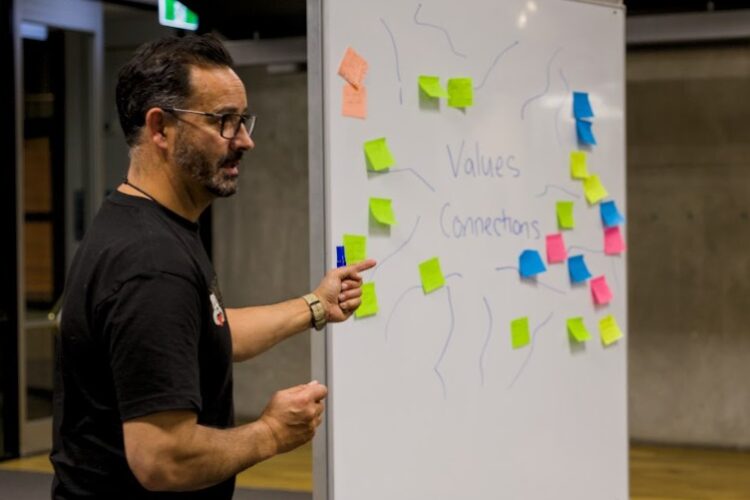
July 31st, 2025
Living Colonisation: A Call to Reimagine Power
Colonisation is a many-rendered thing. This is a quote I read from Matua Moana Jackson that speaks to what is still the lived reality for many people. To this day, Indigenous peoples are still experiencing colonisation.
I state this not from a victim perspective. Much of the rhetoric heard in many spaces is about “getting over it.” The notion, as Andrew Judd coined — “Why don’t they just get over it?” — is still very loud. However, I don’t want to sit in that space.
Instead, I want to explore — and invite others to explore — the idea that Matua Moana’s quote speaks powerfully to: that not all people are forcibly colonising, and that it is not necessarily the classic groupings of people who are being colonised. Rather, it is those who are powerless within the systems that dictate our ability to live as a community, as
a collective.
Let’s look at a definition of colonisation:
Colonisation is the process of establishing and maintaining control over a territory and its people by a foreign power, often for the purpose of settlement, resource extraction, or economic exploitation.
Now, if we overlay this with the idea of an economic and political system in which a country’s trade and industry are controlled by private owners for profit, we can see that systems are being developed to make this even more efficient. In short — I propose that the current colonising actor is the system itself.
Why do I propose that it is the system, not the people, who are the actors in this space?
|
|
You can read more stories of impact as well as thought-provoking pieces from across our Leadership Lab ecosystem by signing up for this monthly pānui (see bottom of www.leadershiplab.co.nz) or by connecting with us on our Leadership Lab LinkedIn and Facebook . You can find an incredible library of resources that you can read, listen or watch on our website here.
Thanks heaps for your interest.

July 31st, 2025
Living Colonisation: A Call to Reimagine Power
Colonisation is a many-rendered thing. This is a quote I read from Matua Moana Jackson that speaks to what is still the lived reality for many people. To this day, Indigenous peoples are still experiencing colonisation.
I state this not from a victim perspective. Much of the rhetoric heard in many spaces is about “getting over it.” The notion, as Andrew Judd coined — “Why don’t they just get over it?” — is still very loud. However, I don’t want to sit in that space.
Instead, I want to explore — and invite others to explore — the idea that Matua Moana’s quote speaks powerfully to: that not all people are forcibly colonising, and that it is not necessarily the classic groupings of people who are being colonised. Rather, it is those who are powerless within the systems that dictate our ability to live as a community, as
a collective.
Let’s look at a definition of colonisation:
Colonisation is the process of establishing and maintaining control over a territory and its people by a foreign power, often for the purpose of settlement, resource extraction, or economic exploitation.
Now, if we overlay this with the idea of an economic and political system in which a country’s trade and industry are controlled by private owners for profit, we can see that systems are being developed to make this even more efficient. In short — I propose that the current colonising actor is the system itself.
Why do I propose that it is the system, not the people, who are the actors in this space?
|
|
You can read more stories of impact as well as thought-provoking pieces from across our Leadership Lab ecosystem by signing up for this monthly pānui (see bottom of www.leadershiplab.co.nz) or by connecting with us on our Leadership Lab LinkedIn and Facebook . You can find an incredible library of resources that you can read, listen or watch on our website here.
Thanks heaps for your interest.


